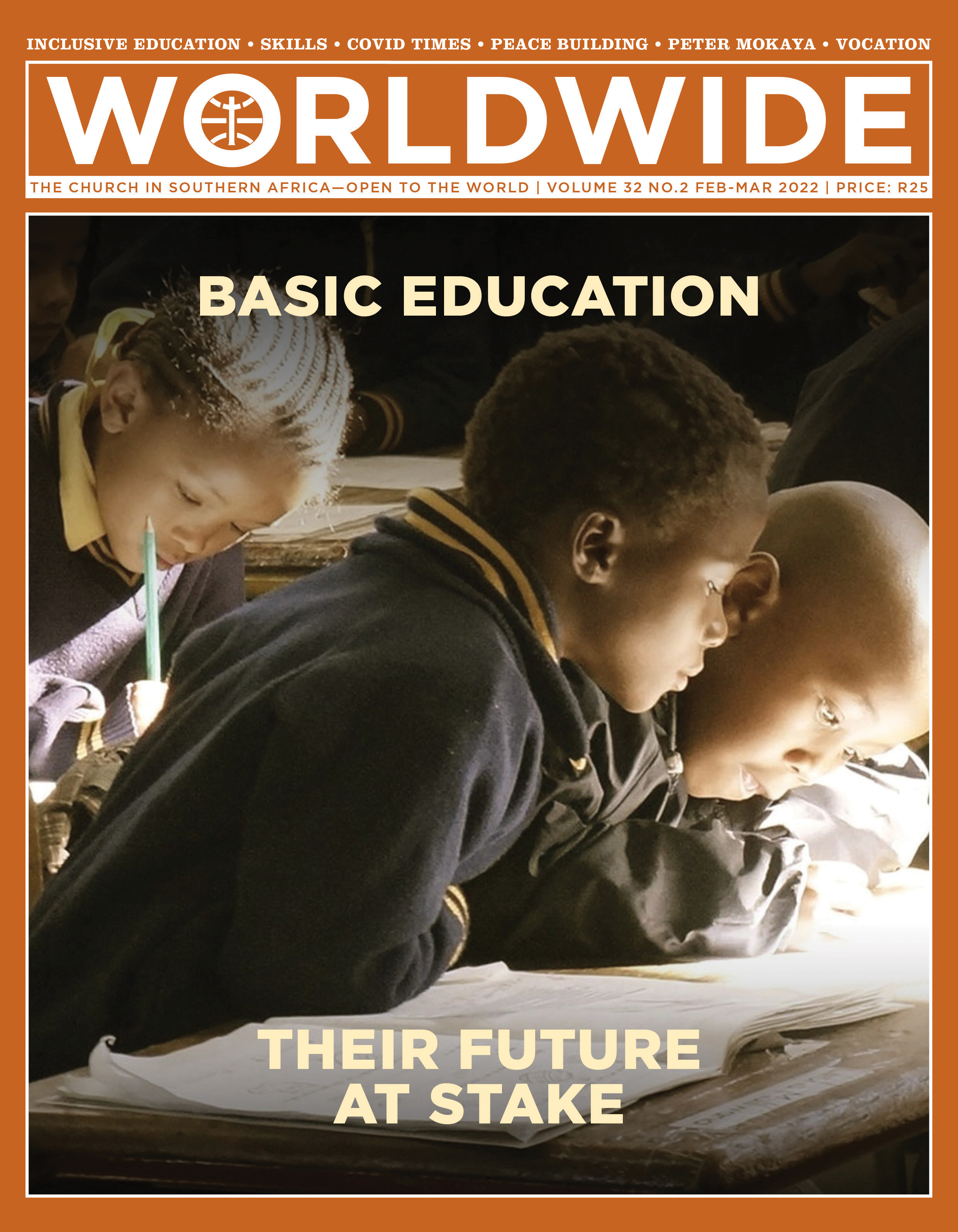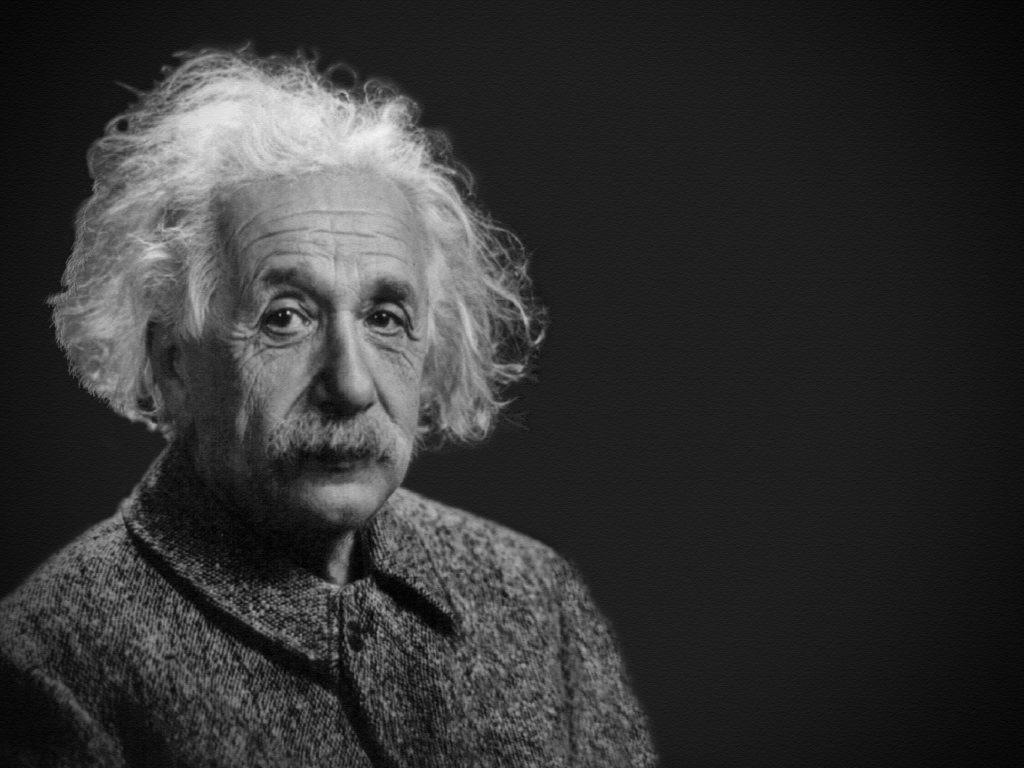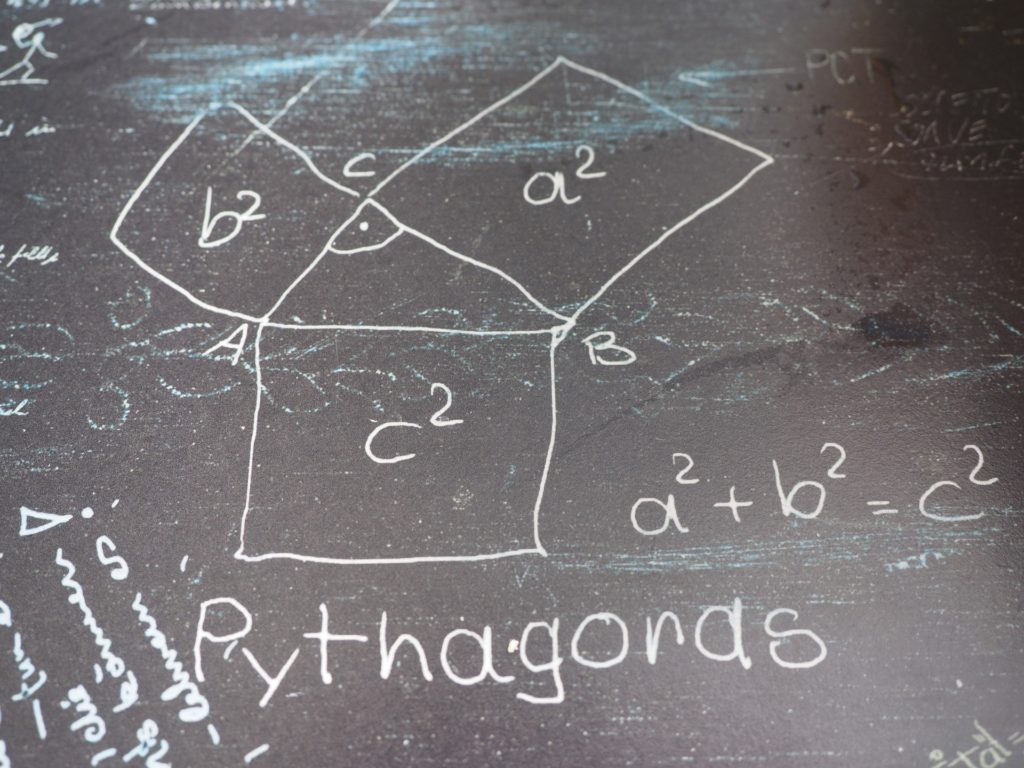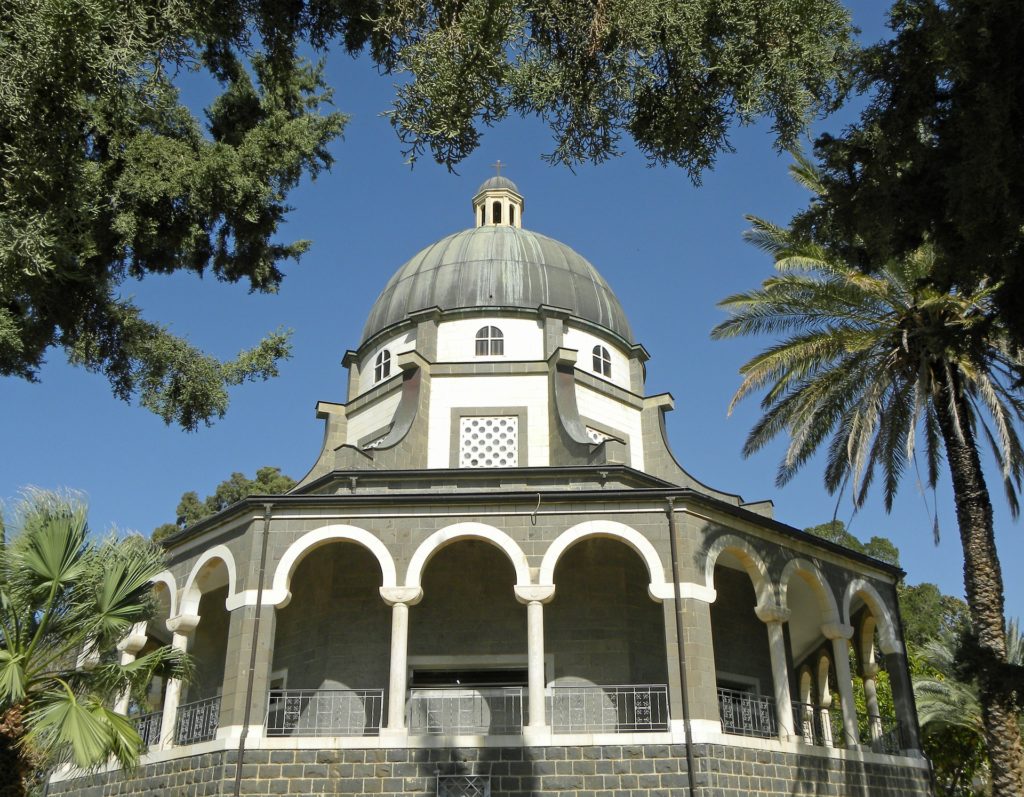
Basic Education Their Future At Stake
The front cover picture was certainly not taken during Covid times. We do not know its exact location, but it could be from any particular school in rural South Africa. What indeed the image of these children reflects is their eagerness for learning and doing it together. Their minds are surely full of dreams; their desires for a bright future cannot be frustrated. The task of offering them an inclusive and integral quality education can look gigantic, but each one’s contribution can make the miracle happen.
YOUTH VOICES • FAITH EDUCATION

The Freedom of Learning
BY Jill A. Williams | Candidate Landscape Architect, Pretoria
ALBERT EINSTEIN (1879–1955) once said that “Education is what remains after one has forgotten what one has learnt in school”. This means that what is planted in one’s mind through formal or informal instruction must be liberating and not constricting, life-giving and not depleting; in this way what remains after school—the plant or tree of knowledge—will be able to do both the work of sowing freedom into other minds, and the work of being receptive to new seeds of formation or instruction.

“Freedom makes man responsible for his acts to the extent that they are voluntary. Immutability and responsibility for an action can be diminished or even nullified by ignorance, inadvertence, duress, fear, habit, inordinate attachments, and other psychological or social factors.” (Catholic Church 1998).
Basic education is similar to catechism as they are fundamental learning stages on the route to adulthood, in one’s faith, and into the society at large
Ignorance can lead to confusion, lack of knowledge, destruction and death, as seen in Hosea 4: 6: “my people are destroyed from lack of knowledge. Because you have rejected knowledge, I also reject you as my priests; because you have ignored the law of your God, I also will ignore your children.” Jesus goes on to indicate that this is the chief purpose of the enemy, whereas Jesus Himself has come to give life in all its fullness (Jn 10: 10). There is a deceptive comfort that one could find in shrugging one’s shoulders and saying ‘I don’t know’. Although we cannot know all things in our limited capacity as human beings, we should not remain in a state of neutrality and passivity, as this can hinder our own growth and cause friction with those who do wish to progress in their knowledge and understanding of the world around them.

but can be seen in everyday problems. Credit: pixabay.
Exchange
Knowledge, however, is fluid: the remnants (education) of your formal or informal instruction and that of mine might not look the same. This can seem like a challenge, as one can struggle to communicate certain ideas to another if one’s pool of knowledge differs from theirs, but this can also be a great opportunity to expand one’s own knowledge base and access the remnants of others. As with the development of technology (think of the automobile, aircrafts, the telephone and many other technologies), what many people have developed and studied throughout their entire lives, can be developed and improved upon by someone else in a year, a month or even a day because of it. This must be part of what we were made for—to think fluidly; to learn freely.
Pope Benedict XVI, on 8 December 2005 said: “The person who abandons himself totally in God’s hands does not become God’s puppet, a boring ‘yes man’; he does not lose his freedom. Only the person who entrusts himself totally to God finds true freedom, the great, creative immensity of the freedom of good. The person who turns to God does not become smaller but greater, for through God and with God he becomes great, he becomes divine, he becomes truly himself. (Cardinal Schönborn 2011).
Basic education and catechism
Basic education in South Africa comprises Early Childhood Development centres (ECDs) for infants and toddlers, primary schools (grades 1–7) and secondary schools (grades 8–12). This lays the groundwork for further education in tertiary institutions such as universities and colleges. Many people, however, never go on to study in tertiary institutions. According to the Organisation for Economic Co-operation and Development (OECD 2019), in 2018 only 7% of adults in South Africa had a tertiary education, far below the G20 average of 38%, thus increasing the importance of the quality and scope of the country’s basic education. This further impacts upon the type of skills and job opportunities available in a country that had an unemployment rate of 34.9% in the third quarter of 2021. (Stats South Africa 2021).
Many challenges exist within this sector including school dropouts due to teenage pregnancy, gangsterism, drug abuse and child-headed homes, as well as decaying infrastructure in various municipalities. However, the importance of education is not only stressed by parents in southern Africa, but in Africa as a whole. The challenges that come with gaining knowledge have unfortunately become the hurdles to obtaining the financial, social and intellectual freedom that comes with receiving formal instruction.
Children would probably wonder: ‘What is the use of school? What will I ever do in the future that involves Pythagoras?’ At the time, a learner might feel stressed from the constant pressure to know foreign concepts, but later on in life, one would smile when in the process of making a DIY kite or coffee table. In fact, Romanelli (2020) claims that our core beliefs are formed by the time we reach the age of seven (at the exit level for ECDs), thus school does play a major role in the way we think, feel and act. Therefore, we each would have found some sort of answer to even existential questions such as ‘do I have meaning?’ and ‘who am I?’ through the educational system and the interactions had during that timeframe.
Transmission of faith
The catechism of the Catholic Church speaks of “Human freedom in the economy of salvation: …as Christian experience attests especially in prayer, the more docile we are to the promptings of grace, the more we grow in inner freedom and confidence during trials … the Holy Spirit educates us in spiritual freedom in order to make us free collaborators in his work in the Church and in the world.” (Catholic Church 1988: 1742).
The importance of education is not only stressed by parents in southern Africa, but in Africa as a whole
Basic education is similar to catechism as they are both fundamental foundational learning stages that help one on the route to adulthood, in one’s faith, and into the society at large. Catechism is the Christian’s form of basic education. Here, instruction is given formally and informally. This happens through classes in which the Word of God and the dogma of the Church is explained and discussed with the students on a weekly basis, as well as through ordinary Christians teaching students how to live in Jesus’s footsteps every day, practically, by way of example. What one learns here is not only head-knowledge, but heart-knowledge, therefore the work of sowing good seed can be seen as doubly important, as the remnants of the instruction one has received can have eternal implications.
The catechetical journey
Teaching and learning happen in the classroom of both a catechist and a school teacher. However, in my personal experience, I have found two differences that made the catechetical journey far different from what I experienced in the formal education system. For one, both the catechist and the catechumen are part of the learning process during classes. At times, when I would teach my catechism class, there would be certain answers that students would give to difficult questions that would broaden my own perspective on these topics. I would always walk away from the lesson of the day feeling refreshed by the encounters and the engaging conversations had. This happens because in many cases, there are no black and white scenarios; there are many grey areas to living a Christian life. This is why St Paul advises us to “work out our salvation with fear and trembling” (Philippians 2: 12). Secondly, there is no such thing as a top achiever when it comes to one’s faith. One can memorize scripture and decipher ancient texts till one is blue in the face, but grace remains grace because, as St Peter discovered, “God does not show favoritism, but welcomes those from every nation who fear Him and do what is right.” (Acts 10: 34, 35).
Catechism is an evangelical tool used by Jesus himself. At the current known location for the Sermon on the Mount, Mount Eremos, Jesus ‘…went up on a mountainside and sat down. His disciples came to him, and he began to teach them.’ (Matthew 5: 1, 2). He not only taught the beatitudes, but lived it out in front of both those who loved and despised him. This echoes the prayer intention made by Pope Francis in December 2021: “Let us pray for the catechists, summoned to announce the Word of God: may they be its witnesses, with courage and creativity and in the power of the Holy Spirit.” (Pope Francis 2021).

Ongoing growth
“The more a person knows about the good and practises the good, the more he moves away from the slavery of sin (Rom 6: 17; 1 Cor 7: 22). God desires that such free persons should (be able to) take responsibility for themselves, for their environment, and for the whole earth.” (Cardinal Schönborn 2011).
Catechism is an evangelical tool used by Jesus himself
Learning is a life-long journey. As one grows, the knowledge obtained in one’s youth matures and deepens through experiences had at first hand and experiences learnt about through books, the news, a story told by one’s grandfather or a joke passed by a friend. One can never say that one comes to know everything. Once you have understood all that the land has to teach you, you’ll realise that there still lies an ocean, a sky and a universe full of unknown stories and wonders to discover.
| Dates To Remember |
|
February 1 – Blessed Benedict Daswa 2 – World Day of Prayer for Consecrated Life 4 – International Day of Human Fraternity 6 – International Day of Zero Tolerance of Female Genital Mutilation 8 – International Day of Prayer and Awareness against Human Trafficking 11 – International Day of Women and Girls in Science 11 – World Day of the Sick 13 – World Radio Day 20 – World Day of Social Justice 21 – International Mother Language Day March 1 – Zero Discrimination Day 2 – Ash Wednesday 3 – World Wildlife Day 8 – International Women’s Day 15 – St Daniel Comboni’s Birthday 20 – International Day of Happiness 21 – International Day for the Elimination of Racial Discrimination 21 – SA Human Rights Day 22 – World Water Day 24 – World Tuberculosis Day 24 – International Day for the Right to the Truth concerning Gross Human Rights Violations and for the Dignity of Victims 25 – International Day of Remembrance of the Victims of Slavery and the Transatlantic Slave Trade |
